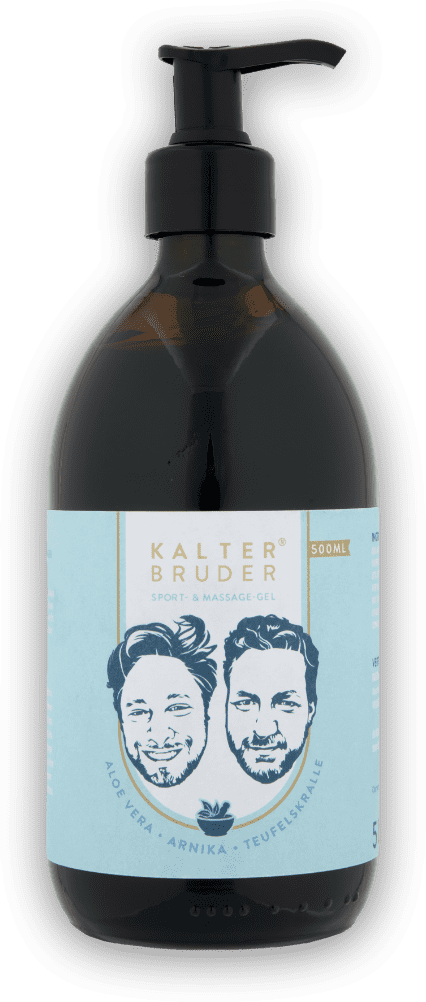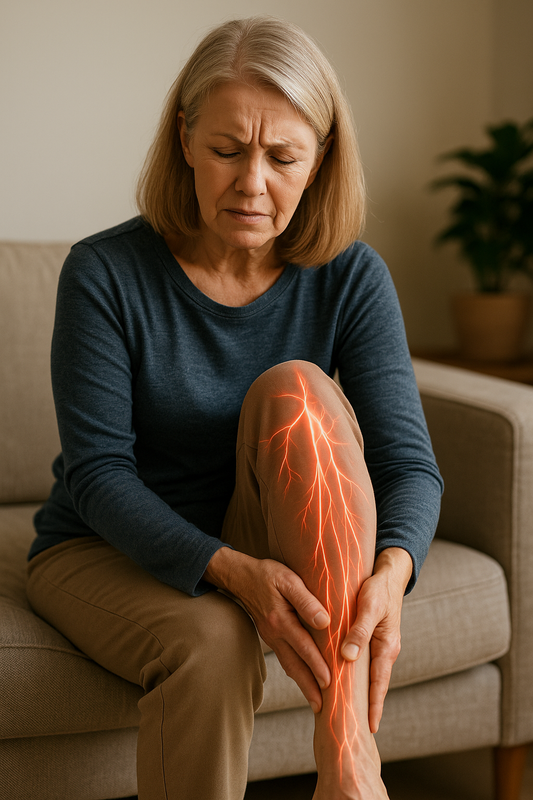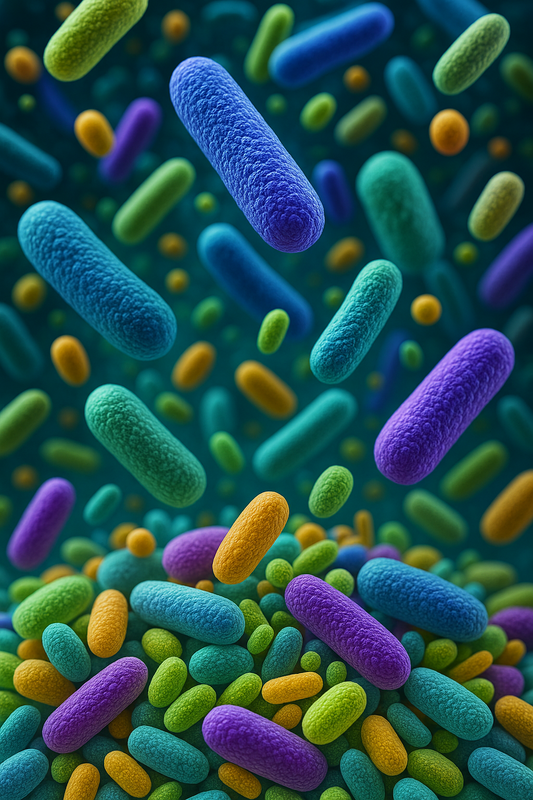Inflammation killers – The best spices against inflammation and their use
Inflammation is the body's natural defense reaction to heal injuries and infections. A classic example is a cut: the affected area becomes red, warm, and swollen as the immune system sends more white blood cells and other defense substances to the tissue to heal. However, chronic inflammation can put a strain on the body and cause long-term damage. It is associated with many serious diseases, including arthritis, cardiovascular disease, and diabetes. Chronic inflammation, also known as "silent inflammation," can cause damage unnoticed and lay the foundation for serious health problems. It is important to understand that inflammation is not just a local phenomenon. It affects the entire immune system and often has a gradual effect on the function of organs and tissues.
The good news is that you can do something about it with simple means. Spices offer a simple and natural way to fight inflammation. They work gently, without the side effects of many medications, and at the same time promote health. In this article, you will learn which spices are particularly effective and how you can integrate them into your everyday life. By using the power of nature, you can strengthen your health in the long term and relieve symptoms.
Why spices are so effective – small amounts, big impact
Spices are much more than just flavor carriers. They are concentrated sources of bioactive compounds such as polyphenols, flavonoids and essential oils (natural substances that give plants their color, flavor and healing power, for example found in spices such as turmeric or basil). These natural substances have been shown to have anti-inflammatory and antioxidant properties. Their most important property is the ability to neutralize free radicals (unstable molecules that can damage cells and promote inflammation) that can otherwise cause cell damage and promote inflammation. At the same time, these compounds strengthen cell structure and promote the regeneration of damaged tissue.
The effect of turmeric is particularly impressive. Its main active ingredient, curcumin (a yellow pigment in turmeric with strong anti-inflammatory effects), directly influences inflammatory signaling pathways in the body by blocking pro-inflammatory molecules such as cytokines (messenger substances of the immune system that control inflammation). These mechanisms are well documented scientifically and show that curcumin is able to sustainably reduce chronic inflammation. Ginger is equally remarkable. Its ingredients gingerol and shogaol (bioactive substances in ginger that relieve pain and inhibit inflammation) not only inhibit inflammation, but also have a pain-relieving effect. Studies show that ginger can be a natural alternative to painkillers for joint inflammation.
Cinnamon offers other benefits. In addition to its anti-inflammatory effect, it regulates blood sugar levels, which can indirectly reduce inflammatory processes triggered by high blood sugar levels. Chili, with its active ingredient capsaicin (the substance that gives chili its spiciness and has a pain-relieving effect), promotes blood circulation and reduces pain signals, while garlic, with its antibacterial effect, fights infections that are often accompanied by inflammation. All of these spices offer enormous potential for relieving both acute and chronic complaints.
Signs of Inflammation – When Your Body Needs Support
Chronic inflammation often manifests itself through subtle but persistent symptoms. These may seem non-specific at first glance, such as persistent fatigue or digestive problems. However, these complaints are often caused by a systemic inflammatory reaction. Pain in the joints that occurs without any external cause is another common sign. Constant exhaustion that does not go away even with sufficient sleep can also indicate chronic inflammation. Digestive problems such as bloating, constipation or a general feeling of discomfort in the abdominal area are also typical indicators.
Skin problems such as acne, eczema or psoriasis can also be a result of chronic inflammation. These inflammatory processes not only affect the skin, but often indicate a disturbed balance in the immune system. In the long term, untreated inflammation can have serious consequences. For example, it can increase the risk of type 2 diabetes, as chronic inflammation reduces the cells' sensitivity to insulin. This causes blood sugar levels to rise in the long term, which can cause further complications such as cardiovascular disease and kidney damage. They significantly increase the risk of diseases such as diabetes, Alzheimer's and cardiovascular disease. The early integration of anti-inflammatory measures, such as the use of spices, can help prevent the progression of such diseases.
Overview of anti-inflammatory spices – spice for your health
Spices not only offer flavor, but also remarkable health benefits. Turmeric is a prime example of an anti-inflammatory spice. Its main active ingredient, curcumin, blocks inflammatory processes at the molecular level and protects cells from oxidative stress. Turmeric is extremely versatile and can be used in curries, soups or in the popular golden milk.
Ginger is another super spice. Its anti-inflammatory and pain-relieving properties make it an essential part of a healthy diet. Ginger is particularly effective for joint pain, digestive problems and colds. Studies show that ginger can inhibit the pro-inflammatory enzymes COX-2 and LOX (both proteins that produce pro-inflammatory substances by converting arachidonic acid into pro-inflammatory molecules such as prostaglandins and leukotrienes), leading to significant pain relief. In addition, clinical studies have shown that regular consumption of ginger reduces the symptoms of arthritis and supports digestion by promoting gastrointestinal movement. Cinnamon, on the other hand, is known for its regulating effect on blood sugar levels. By improving insulin sensitivity, it can curb chronic inflammation promoted by elevated sugar levels.
Garlic is a true all-rounder. Thanks to the active ingredient allicin (a sulfur-containing compound in garlic with antibacterial and anti-inflammatory properties), it not only has an anti-inflammatory effect, but also an antibacterial and antiviral effect. Chili contains capsaicin, which promotes blood circulation and relieves pain caused by inflammation. Rosemary scores with a high content of antioxidants that strengthen the immune system and reduce inflammatory processes. These spices show how easy it is to combine taste and health.
The Best 25 Anti-Inflammatory Spices and Their Benefits
| spice | Effect | Additional benefits |
|---|---|---|
| turmeric | Inhibits inflammatory processes through curcumin | Strengthens the immune system, antioxidant effect |
| Ginger | Reduces pain and swelling | Promotes digestion, antibacterial |
| Cinnamon | Regulates blood sugar and reduces inflammation | Antibacterial, warms the body |
| Garlic | Reduces inflammatory messengers | Good for cardiovascular system, antibacterial |
| chili | Promotes blood circulation and relieves pain | Stimulating, antioxidant |
| rosemary | Antioxidant effect, fights inflammation | Supports concentration, promotes digestion |
| Black pepper | Enhances the effect of curcumin | Anti-inflammatory, antioxidant |
| cumin | Relieves inflammation and strengthens the immune system | Supports digestion, antibacterial |
| fennel | Has anti-inflammatory and antispasmodic effects | Promotes digestion, soothes |
| coriander | Reduces inflammation and soothes the body | Detoxifying, digestive |
| basil | Fights free radicals and reduces inflammation | Antibacterial, strengthens the immune system |
| oregano | Inhibits the growth of bacteria and inflammation | Antioxidant, supports digestion |
| thyme | Relieves inflammation and strengthens the immune system | Antibacterial, expectorant |
| carnations | Have strong anti-inflammatory properties | Painkiller, antibacterial |
| anise | Has anti-inflammatory and antioxidant effects | Antispasmodic, digestive |
| Saffron | Reduces inflammation and oxidative stress | Mood-enhancing, strengthens the nerves |
| cardamom | Helps with inflammatory complaints in the gastrointestinal tract | Promotes digestion, antioxidant |
| nutmeg | Reduces inflammation and has a calming effect | Promotes sleep quality |
| laurel | Relieves inflammation and strengthens the immune system | Digestive, expectorant |
| marjoram | Inhibits inflammation and promotes digestion | Antioxidant, soothing |
| dill | Reduces inflammation and supports digestion | Antispasmodic, calming |
| sage | Has an anti-inflammatory effect and strengthens the immune system | Antibacterial, expectorant |
| mint | Soothes inflammatory processes in the gastrointestinal tract | Promotes digestion, refreshing |
| tarragon | Helps relieve inflammation | Promotes digestion, antispasmodic |
How to integrate anti-inflammatory spices into your everyday life – Healthy seasoning made easy
Anti-inflammatory spices are easy to incorporate into your daily diet. Start the day with a cup of golden milk containing turmeric and ginger, or make a warming ginger tea with lemon and honey. You can use turmeric in curries or soups, while rosemary and garlic add flavor to stews and meat dishes. Cinnamon goes perfectly with breakfast dishes like yogurt or oatmeal, while chili spices up savory snacks like spiced nuts. Smoothies also benefit from a hint of ginger or cinnamon, which not only adds flavor but also health benefits. With a little creativity, you can incorporate these spices into almost any dish.
Avoid mistakes – What you should keep in mind
Despite their many benefits, spices should be used consciously and in the right amount. Too much of a spice can be harmful. For example, excessive consumption of chili or ginger can irritate the stomach. Some spices such as turmeric or garlic can affect the effect of medication, especially blood thinners. Quality also plays a crucial role. Organically grown spices contain fewer harmful substances and have a higher concentration of active ingredients. By paying attention to these aspects, you can ensure that the spices have their full effect.
Recipes with anti-inflammatory spices – delicious and healthy
Golden Milk
(an anti-inflammatory drink that is particularly effective due to the combination of turmeric and ginger, as both spices inhibit inflammation and strengthen the immune system)
Ingredients : 1 teaspoon turmeric, ½ teaspoon ginger, 250 ml plant milk, 1 teaspoon honey
Preparation : Gently heat the plant milk and stir in the turmeric, ginger and honey. Mix well and enjoy warm.
Oriental curry
(particularly effective due to turmeric, which has an anti-inflammatory effect, and cumin, which promotes digestion)
Ingredients : 1 teaspoon turmeric, 1 teaspoon cumin, ½ teaspoon cinnamon, 500 g vegetables (e.g. carrots, zucchini, peppers), 400 ml vegetable stock
Preparation : Cut the vegetables into small pieces and fry them in a little oil. Add the spices and let everything simmer for a short while. Pour in the vegetable stock and cook until the vegetables are soft.
garlic-rosemary chicken
(particularly anti-inflammatory due to the combination of garlic, which inhibits pro-inflammatory substances, and rosemary, which is rich in antioxidants)
Ingredients : 2 chicken breast fillets, 2 sprigs of fresh rosemary, 2 cloves of garlic, 2 tablespoons olive oil
Preparation : Marinate the chicken breast fillets with chopped garlic, rosemary and olive oil. Leave for 30 minutes and then fry in a pan until golden brown or cook in the oven at 180°C for 25 minutes.
Conclusion – Spice up your life healthily
Anti-inflammatory spices are a simple and effective way to promote health. They can be easily integrated into your daily diet and can help prevent or reduce inflammation. Even small changes in the kitchen can have a big impact on your well-being. With the right spices, your diet will not only be healthier, but also more varied and enjoyable. The natural powers of these spices offer you the opportunity to strengthen your health in the long term. Discover the positive effects of these little helpers and spice up your life with health!















